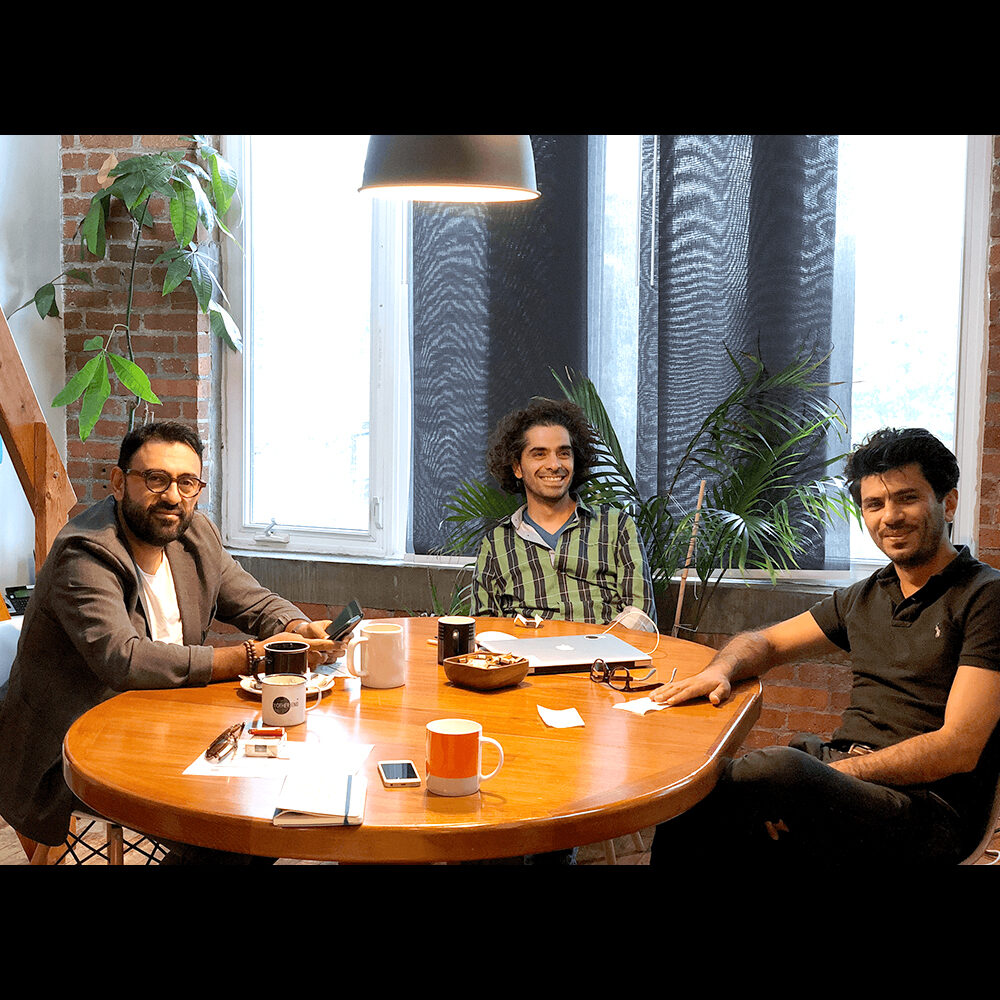NEWS

BEHIND THE SCENES WITH POOYA BADKOOBEH BY MARISA SITTHEEAMORN
Born in Tehran in 1983, Pooya Badkoobeh is an Iranian Director and Screenwriter. With an education in Graphic Design and Theatre, Pooya has been working in the advertising space since 2003. In 2018, Badkoobeh’s first feature film, Dressage, premiered at Berlinale. The film, which follows 16-year-old Golsa living in a small town near Tehran, was nominated for the Best First Feature Award and received special mention for the International Jury Generation 14Plus Prize. Badkoobeh recently popped by our office, where we had the pleasure of discussing the trials and tribulations that came with creating his first feature.
FCC: Where does your film background come from? Does it come from theater? How was Dressage originally created?
PB: I studied theatre and was very active in advertising, so people expected my first film to be very commercial. But my approach to storytelling is different. Surely, my background in theatre helped me, and talking too much in advertising is common. My combined experiences helped me figure out what was important to tell, and what was not. The origins of the story go back to the time when I wanted to make a documentary. In Malaysia, I met a student who told me a story, and ended up with an idea about where this modern life has taken us, and how we are living. Nowadays, we have planes and jets, but the distance between us grows bigger day by day. We went to Malaysia for pre-production, with the budget ready, but we couldn’t make the film. When I went back to Iran, my friend told me to watch Samsara, and I realized that someone else had made my film – and made it better. So I met Hamed Rajabi through a mutual friend, and we decided to write a new story together.
My mother is from Hemdan, and Hamed had been there a few times. At the time, buses were going from Mehrshahr and Karaj, and our idea started from there. There were many ruins from houses originally built out of love and hardwork. I realized there were a lot of these villas in Mehrshahr, and that’s how we selected the location. Hamed and I also agreed to get to know each other better before production. So writing the script was the most enjoyable part of making the film for me. To sum it all up, the story started from this point – from family relationships, modernity, teenagers, and city life
FCC: What was your feeling when the film screened in Iran, as compared to in other countries? What were the differences in point of view?
PB: Our first screening was in Berlin. I saw so many parents come to the screening, which was very interesting. The movie is relatable in its message about youth. Reactions were amazing, with the best spectators in Berlin. Screenings at Fajr International Film Festival were also good.
The reactions of Iranians and foreigners were somehow similar. In Q&A’s, Spanish, Chinese, and German families all told me that the movie related to their relationships with teenagers at home. Even when Dressage was released at an educational organization in France, this matter was mentioned. It was exciting to see people from other countries have the same encounter. It shows the universality of problems that exist between families and their children. My focus was to show how we are losing each other in this modern life. For a better house or car, there’s no time to live life. You see, culturally our worlds are all alike.
FCC: There is a debate that non-Iranian judges take issue with certain aspects of Iranian film. The claim is that we as Iranians get used to certain issues, so we can not see them clearly in our filmmaking. Judges have told us that the close relationships between boys and girls are not believable because they cannot touch on screen. But this was certainly not the case in Dressage. The films was a clear coming-of-age depiction of boys and girls exploring each other. So much so, that it seems like the film was made without any limitations in Iran.
So, what was the process of constructing the narrative? Did it happen naturally, or did you have a particular strategy when writing the screenplay?
PB: I should think about it, but it happened naturally. We had no intention of breaking rules, or trying to show the relationships as friendly. The only thing we kept in mind during the writing process, was that we wanted to show real life, and keep it natural.
I was hanging out with these kids a lot, and so many changes happened. Even my taste in music changed. It was Ms. Atiye’s idea to give handy camera to the kids that came in for the test. They had to take a camera and make a film out of their own lives, about what was happening in their homes. We received nearly 200 hours of rush footage, with very strange and exciting scenes which had potential to be in a film. This helped me a lot
FCC: In addition to the high production quality, the film’s balance of casting is also interesting. You had the experienced Ali Mosaffa working with young and inexperienced actors. What was your decision behind this?
PB: First of all, we were so lucky to have Ali Mosaffa. From the first day of writing, I envisioned Shabnam and Ali in my cast. Shabnam is literally an ordinary Iranian woman, and Ali looks like a loser who would do anything for his family to make them happy, but with no success. Personally, my taste is in Ali’s style of acting. Negar was in front of the camera for the first time, but Yasna had done some acting before. The rest were not very experienced.
I thought a lot about how I wanted everyone in the frame to look real and natural, and looked for that in my cast. I tried to put these relationships together in one, and make them believable. For example, Yasna and Negar had been in a push and pull relationship from the very beginning.
FCC: You just moved to Canada, so we are curious to hear if you’re planning to make a second film? If you are, are you going to undergo the same process, or do you want a completely new one? Does being outside Iran, or more specifically, being in Canada, make a difference? How do you see yourself as a filmmaker in the future?
PB: This is a very good question. It’s always important to think about the future. To be honest, at the moment, I am taking a step away. You know the situation in Iran; it can be very tough for filmmakers to make their second film. It’s stressful there, with others influencing how to act, and what stories to tell. The reactions people and celebrities have are more successful with commercial movies, and the combination of everything impacts you step by step. So I decided not to think about my second film, and wait a little longer.
Based on my script, I never expected my film to be commercial. I don’t make movies for market, I make them according to my personal ideas and taste. Berlin somehow destroyed our work – a bit of enmity happened. Fajr Film Festival rejected us, and some rumours spread as our film went to Berlin. Reporters spiced up the situation with unrealistic questions, so I thought it was important to take some proper time and not rush into a new project.
My second film script, which I wrote with Amirreza Koohestani, has been ready for several years. I want to make the film, but I feel like Dressage will impact it alot, so it’s best to wait. Instead, I moved to Canada, and am taking some courses at the university
FCC: So your new script is also related to Iran?
PB: I put that script aside for now. But, unconsciously, the script relates to Iran here and there. Seeing people’s reactions to Dressage made me realize audiences either love it or hate it. To me, it’s not about making a film or talking about something that people will love. Filmmaking is about emerging new trends. This is very important to me, and I will implement it in my next film as well.
But if you ask me what’s important now, I would love to give hope and peace to people in my next film. The atmosphere of protest will be less evident and much smoother.
